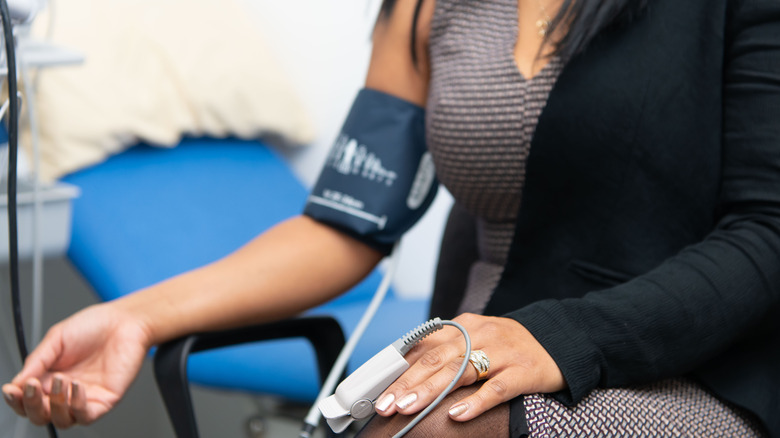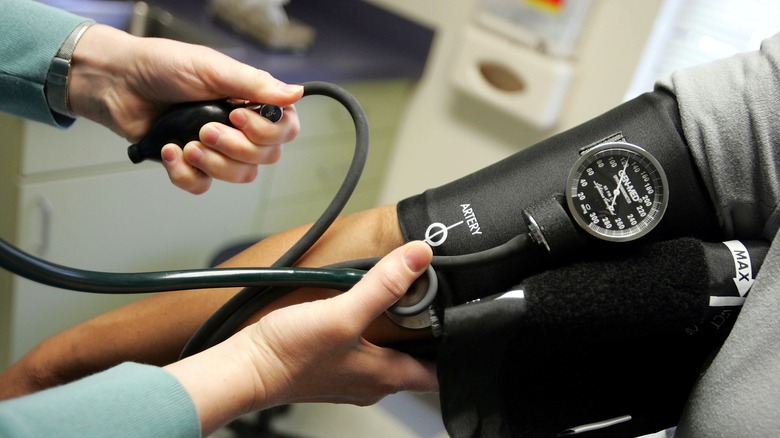The Real Reason Doctors Take Your Blood Pressure
When we go to the doctor, there are certain things that we have come to expect because of how common they are. While some of them may be uncomfortable or annoying, not one of them is without good reason. For example, your doctor pushes on your stomach to make sure it is not too firm or tender. They use stethoscopes to listen to your heartbeat and make sure it is not making any strange sounds that could indicate health problems (per University of Rochester Medical Center).
Of course, you will seldom have a doctor's appointment without having your blood pressure measured. Your doctor does this by wrapping and tightening a cuff around your arm. It can be uncomfortable, but it is painless and only takes around a minute. It has such a vital purpose that the Mayo Clinic recommends healthy adults under the age of 40 get their blood pressure tested at least once every 2-5 years. People 40 or older and those who have an increased risk of high blood pressure should get tested every year, but why?
Why your blood pressure measurement is important
When your doctor wraps the cuff around your arm, they intend to measure the pressure inside your arteries. This is important because high blood pressure, which has been dubbed "the silent killer," often has no symptoms. Measuring your blood pressure is essential to determining whether or not you have hypertension, according to Medical West Hospital.
High blood pressure is far from uncommon. In fact, the U.S. Centers for Disease Control and Prevention notes that 47% of American adults have hypertension, which increases their risk of stroke and heart disease. This percentage increases with age. If a person makes it to the age of 55-65, they are more likely than not to develop the condition during their lifetime, according to Johns Hopkins Medicine. This is no joke, as stroke and heart disease are among the leading causes of death in the United States. Nearly 517,000 deaths in 2019 could be attributed partly or wholly to hypertension. Early detection and treatment are crucial, which is why blood pressure measurement has become a staple of doctor's appointments.


